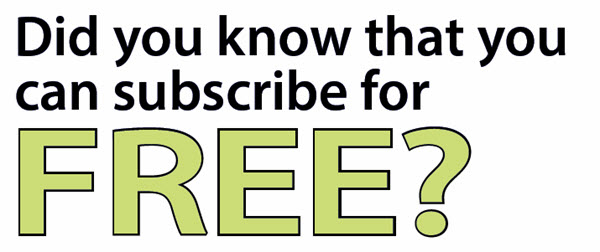What you should worry about—and what you shouldn’t.
By now, you’ve likely heard about the Marketplace Fairness Act (MFA) going through Congress. The bill was passed by the U.S. Senate in May and is now being reviewed by the House. With the bill being debated from all angles, here are five things retailers need to know:
1. Not all businesses are impacted by the bill.
Businesses with less than $1 million in total gross remote sales in the preceding calendar year are not impacted by the MFA. Whether you fall within the small seller exception or not, your company would still be required to collect sales tax in states where you collect now.
2. The bill applies to more than just online retailers.
The bill applies to all “remote sellers.” Remote sellers are defined in the bill as any entity (individual, corporation, LLC, and the like) that sells from one state into another and that does not currently collect sales tax. The sales method can be website, phone, or catalog.
If you run a California-based company that sells into other states, and only collect sales tax in California today, all of your sales into other states would be counted as “remote sales” under MFA. In addition, if your company has ownership interest in another company (as defined by the IRS), you might also be required to add their remote sales numbers to yours.
3. Your company likely wouldn’t have to collect sales tax immediately wherever you’re considered a remote seller.
Even if this bill becomes law tomorrow, some states will have to implement significant tax code simplifications in order to enforce it. Even then, states would not be allowed to implement the law earlier than 180 days following enactment.
Roughly half of the states with sales tax have already simplified their sales tax codes to the level required by MFA. The remaining states would need to pass laws to affect similar changes, including elements like a centralized sales tax administration and uniform rates, rules and boundaries.
4. Your company would still have to worry about state-level statutes.
Even if MFA passes and you are under the small seller exemption, none of your existing collection obligations go away. Assuming your company already calculates, collects and remits sales tax correctly in every state, and many don’t, passage of this legislation will add new compliance requirements to many companies.
Many states have already enacted laws that require certain out-of-state businesses to collect sales tax. These laws, typically called “Amazon laws,” require more out-of-state businesses to collect sales tax, even if they lack a significant physical presence in that state. If MFA passes, and your business would be eligible for the small seller exemption under MFA, your company may have to comply with Amazon laws in states like Texas and California.
5. There are steps you can take now to simplify your tax compliance.
Long before legislators wrangled over which companies should collect and remit which taxes, sales tax has plagued companies of all sizes. With over 11,000 taxing jurisdictions throughout the United States and nearly 1,000 rate, boundary, and rule changes in January 2013 alone, getting sales tax calculations right is nearly impossible without help. In an era of doing more with less, companies are already outsourcing core functions ranging from accounting to payroll to legal. Outsourcing aspects of business compliance such as sales tax makes good business sense, regardless of what happens with MFA.
Rory Rawlings is the founder and chief tax automation officer of Avalara. Rory leads development efforts around accuracy, reliability and efficiency of the company’s robust web-enabled sales tax compliance solution. Prior to Avalara, Rory was a professional accountant, gaining extensive experience in financial planning, business planning, profit analysis and tax research. Among his previous positions are senior manager of packaged solutions at BDO Seidman, director of IT at PhotoDisc (now Getty Images) and senior software developer and director of professional services for The Boeing Company. In addition to becoming a CPA, Rory is certified as a PowerBuilder Developer and Instructor in Object Oriented Analysis and Design (OOAD). He has been an instrumental voice in the development and growth of the Streamlined Sales Tax initiative and was named to Accounting Today’s 100 Most Influential list in 2008.









